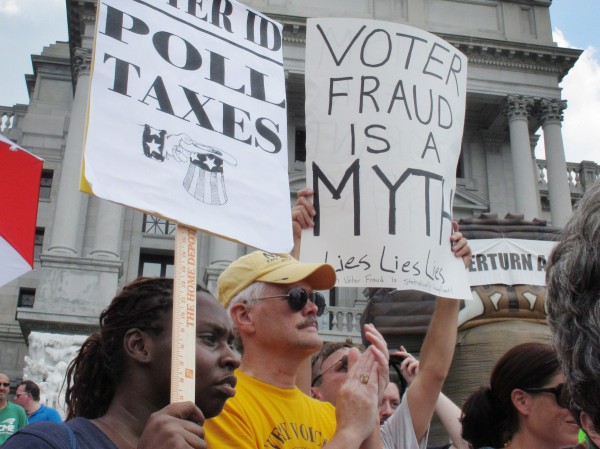Study: In-person Voter Fraud is Virtually Non-Existent


A new study of voter fraud over the last twelve years finds that, though cases of such fraud can indeed be found throughout the United States, they are “infinitesimal” in number, and that cases of in-person voter fraud or impersonation on Election Day are virtually non-existent.
The study was produced as part of the News 21 Voting Rights Project, a nationally coordinated investigation conducted by two dozen journalism students from across the country, and centered at the Walter Cronkite School of Journalism as Mass Communication at Arizona State University in Phoenix.
Over the spring and summer the team built an extensive database of all documented cases of election fraud in the United States since the year 2000, and claims it is in fact that most comprehensive database of its kind.
The investigation found that though in-person voter fraud is virtually non-existent, absentee ballot fraud and voter registration fraud are much more common, though still not exactly widespread. The team found just 10 reported cases of in-person voter fraud, 491 cases of absentee ballot fraud and 400 cases of registration fraud across the country over the last twelve years.
In recent years, voter fraud has become the pet cause of Republican party activists and legislators across the country. On the basis of the claim that the illegal practice is widespread throughout the country at all levels of government, they assert the need for strict new voter identification laws that would require eligible voters to present government-issued photo identification in order to be able to exercise the franchise. Democrats claim that the voter photo ID push is nothing more than an attempt to suppress voter turnout among citizens who lean toward the Democratic party, such as minority voters and students.
If counteracting voter fraud is indeed the primary motivation for the implementation of new voter identification laws, the proposed solution does little to address the alleged problem. As the News 21 study points out, requiring voters to present photo identification at the polls would do nothing to counteract absentee ballot fraud and voter registration fraud, which obviously do not require the fraudster to appear at any polling place.
The results of the News 21 study corroborate the findings of similar investigations carried out by the Brennan Center for Justice, which concluded that fraud by individual voters “is both irrational and extremely rare.”
Still, Republicans claim that voter fraud is a systemic problem. Defending its new voter photo identification laws in court, the state of Texas recently argued that the new laws are necessary to “combat a culture of election fraud.” Given the character of recent high profile voter fraud cases, one is justified in wondering whether Republicans are simply projecting. Earlier this year, Indiana's Secretary of State Charlie White was removed from office after he was convicted on six felonies, including three counts of voter fraud. In July, a Republican candidate for county supervisor in Arizona withdrew from the race amid allegations of absentee voter fraud. Just last week, it was reported that the wife of a well known Wisconsin Republican lawmaker had been voting in Wisconsin elections though she was in fact a resident of Idaho.
If politicians and legislators were actually interested in preventing voter fraud and protecting the integrity of the elections process, they would be much more concerned about the shoddy security of the nation's electronic voting machines and the vote tabulation process, and less interested in making it more difficult for everyday citizens to cast their ballots.



